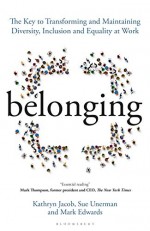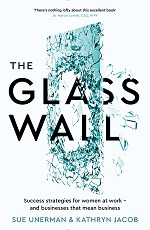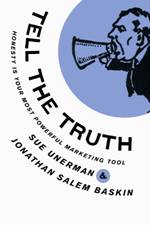Let me count (some) of the ways:
You are the only woman in the team
You are the only person over 50 in the team
You are the only person of colour in the team
You are the only LGBTQI+ person in the team
You are the only disabled person in the team
You are the youngest person in the team
You are the only northerner in the team
You are the only English person in the team
You are the shortest person in the team
You are the only introvert on the team
You are the only married person in the team
You’re the only person without a “significant other” on the team
You are the only working mum in the team
You are the only person with diagnosed mental illness on the team
You are the only person with a hot flush in the team
You are the only religiously devout person on the team
You are the only non-drinker in the team
You are the only person who didn’t go to university in the team
You are the only person who doesn’t ski
You are the only public school boy on the team
You are the only person on the team that doesn’t follow cricket/football/Love Island/rugby
You are the only person on the team without Netflix
You are the only person on the team without kids at home
You don’t have a puppy
You don’t speak digital acronyms
All you know about AI is from Bladerunner
Your idea of team bonding doesn’t involve the pub
You are offended by banter
You are bereft of a way of connecting without banter
You hate it when you are challenged in public
You cannot cope with politics
You are obsessed with FOMO
If you don’t get a compliment you assume you’re out of favour
You are lonely at the top
You are crushed at the bottom and feel like you do all the work and get none of the credit
You didn’t grow up with the same kids TV shows as the rest of the team
You are disappointed to know that you have to pretend to be different than your real self in order to fit in
You come from a working class background and the team is middle class
You are hiding your real feelings in case they make people like you less
And so it goes on….
Feeling like you don’t fit in can be for a myriad of reasons. They are not equivalent by any means. As one interviewee told me for our book Belonging: “I now know that if my profile (as a straight white middle class man) changes by one increment, my (professional) journey becomes harder. If I change it by two or three or four, it becomes impossible.”
However, if you have ever felt that you don’t belong, then you can do something wonderful. You can empathise and imagine what others might be feeling. And if you do this then you can help them to feel like they belong with positive affirmations and standing up for them when you sense that they are being left out.
In our book Belonging, the key to transforming and maintaining diversity, inclusion and equality at work (and just shortlisted for the 2021 Business Book Awards UK), we explain exactly how to lead from every seat.
You can be a champion of Belonging and drive real change in your place of work so that no-one feels like an unwanted outlier.
So that everyone feels like they belong.



Delivering transformation: Push what moves.
Tuesday, April 20th, 2021The RSA’s head of design is fond of advocating the idea that in order to get change and transformation you need to “Push what moves”. Note, push what moves, not what is most impactful. The Royal Society for Arts, manufactures and commerce was founded in 1754 with the purpose of finding practical solutions to social challenges. Its members have included Charles Dickens, Benjamin Franklin, Stephen Hawking, Karl Marx, Nelson Mandela, David Attenborough and Tim Berners-Lee. It is highly influential and at the forefront of leading edge thinking about the future of work. (For disclosure, I’ve just become a fellow.)
Push what moves is good advice in many respects – here’s 3:
In terms of change creating quick wins and then spotlighting everyone involved in those wins can be transformational where weeks and even months of waterfall planning of a full roll out of a new way of working can prove frustratingly slow and prone to failure. If you are rolling out a new planning process try it out with some friendly and positive teams and celebrate the outcomes (perhaps even awards won) before you roll it out to everyone. This effective pilot with the friendliest teams will allow you to identify anything that needs ironing out for full roll out.
My first lesson in marketing came from regional planning of television back in the days when the norm was to buy airtime in this way. I had done some analysis of the share one client had by different region and noted that they were under represented in the North East. What an opportunity for growth! Delighted with this insight I made a recommendation to my boss that we pile in with significant advertising. He pointed out that there needed to be much more analysis of why the deficit existed in the first place. Did the brand not resonate there? Was there a reason for diminished distribution? Was there a powerful local competitor? If in doubt the rule of marketing is to support your areas of strength. Often it is easier to give someone who buys the product fortnightly reasons to buy it once a week than to convert non-users. Easier to keep customers than to acquire new ones.
At the moment the effort of becoming a better more inclusive workplace frequently falls to those who do not feel included at the moment. They will be encouraged to “lean in”, “join in” and “fit in” even if this means covering or not being able to bring their real identities to work. They are often pushing in at a door that only opens outwards. Booker prize winning writer Bernadine Evaristo (the first black women to win the prize) says: “..organisations know what to do. They have to open the door. Yet the onus is always put on us, the people who have been shut out, to find a way in.”
She’s describing a situation where the board room is still (mainly) full of white men, and everyone else is outside trying to push their way in through a door that only opens outward. It is a powerful analogy. As we ask in Belonging, the key to transforming and maintaining diversity, inclusion and equality at work: “Where are all those men in this debate? And what are they actively doing to change the status quo?” We need people in the boardroom, in fact anyone with privilege, to open the door and invite different types of people from those inside in, to join them, to make them feel welcome and that they belong. If you can push that door open to be more inclusive of diversity then you should take this on as your important and special task. Become the solution. Push what moves.
Posted in MediaComment | No Comments »